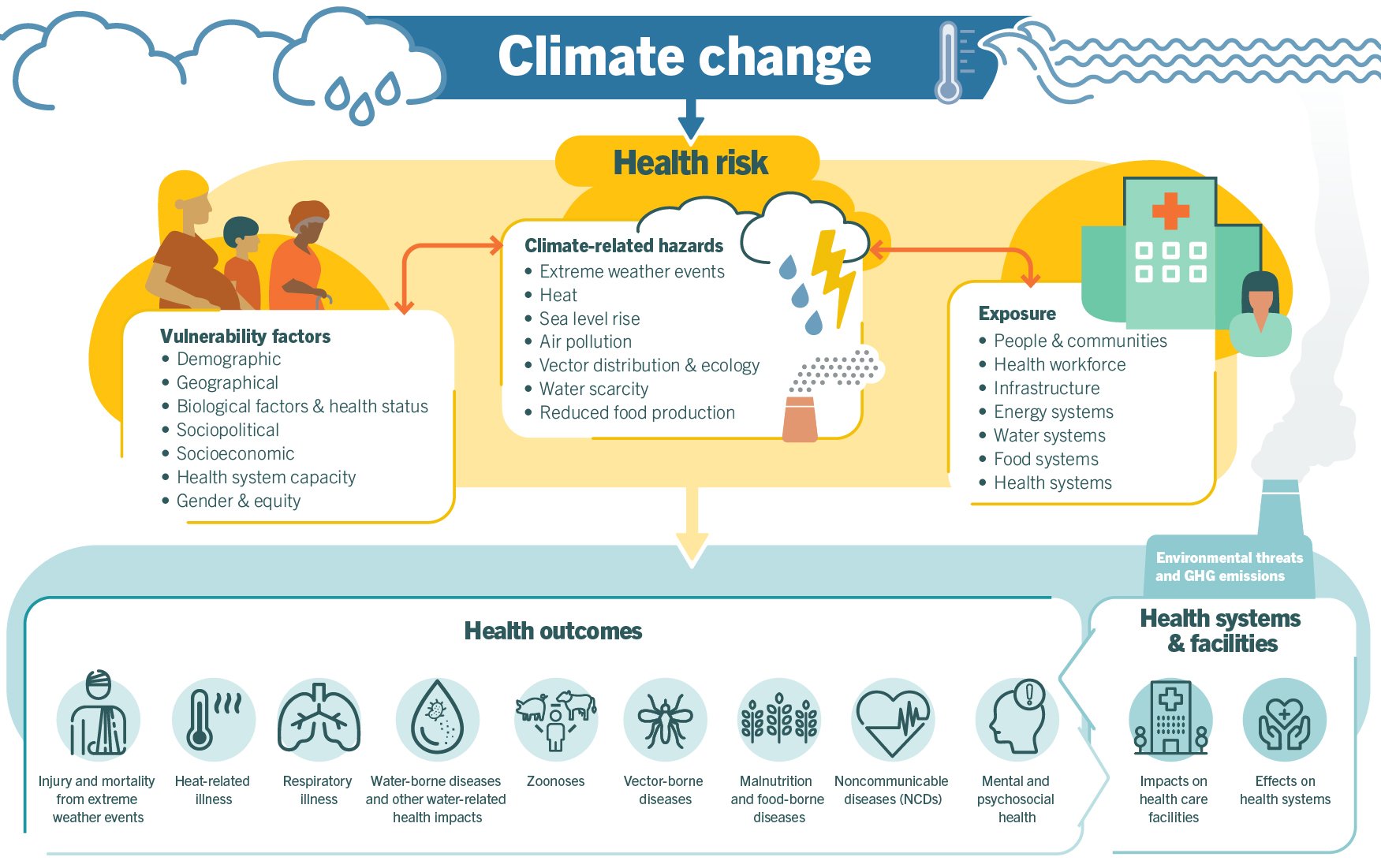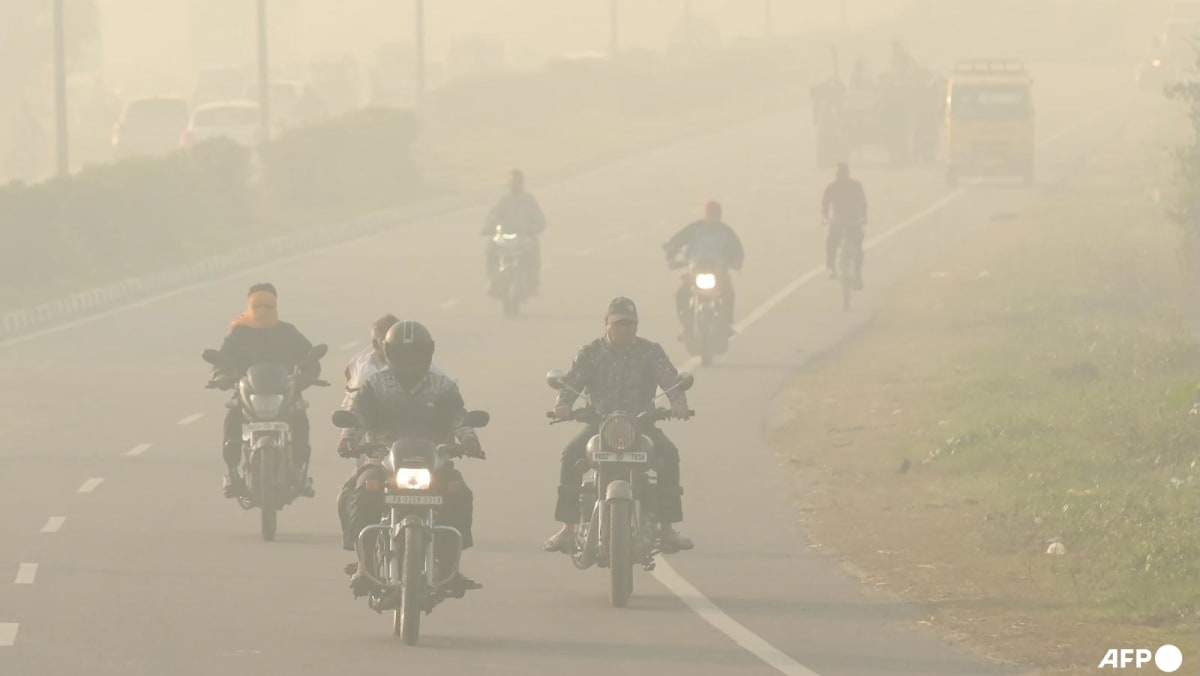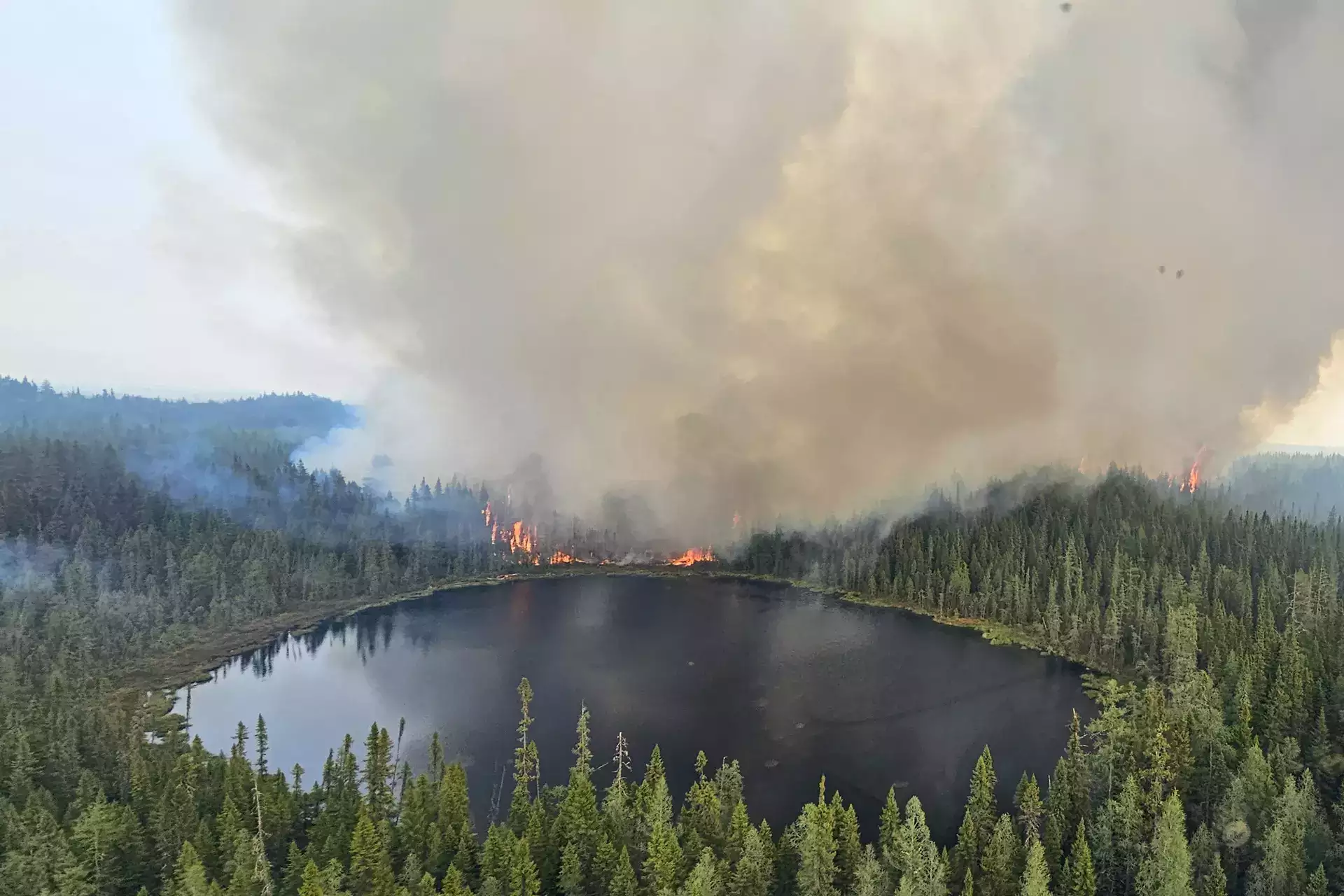Climate change causes a significant risk to human health. It has an impact on the physical environment as well as all aspects of natural and human systems, including social and economic conditions and functioning health systems. It is thus a threat multiplier, undermining and possibly reversing decades of health progress.
According to one estimate, if global temperatures rise by 2 degrees Celsius, many parts of India will become uninhabitable. The year 2023 witnessed the highest temperatures and heat waves in recorded history. The global situation is likely to worsen. Climate emergencies such as extreme heat, cyclones, and floods are expected to occur more frequently. These will jeopardise food security and livelihoods while also exacerbating health concerns.
Every year, world leaders meet to discuss their climate commitments. The most recent UN climate change summit, COP28, took place in the United Arab Emirates. Countries agreed to "contribute" to "transitioning away from fossil fuels".The next conference, COP29, will take place in Azerbaijan in November 2024.

Photo Credit: WHO
Impacts on Health
Lack of safe drinking water
WHO data indicates 2 billion people lack safe drinking water and 600 million suffer from foodborne illnesses annually, with children under 5 bearing 30% of foodborne fatalities. Climate stressors heighten waterborne and foodborne disease risks. In 2020, 770 million faced hunger, predominantly in Africa and Asia. Climate change affects food availability, quality and diversity, exacerbating food and nutrition crises.
Communicable and non-communicable diseases
Climate change is expected to exacerbate India's health issues, including communicable and non-communicable diseases, by increasing the growth of vectors like mosquitoes, sandflies, ticks, and unknown ones, altering infection seasonality, and introducing pathogens into previously unexplored areas, such as mosquitoes in the Himalayan States.
Heat also influences pathogen virulence. Food and water scarcity, as well as a decrease in nutritional value, increase disease susceptibility. Epidemics are common after floods, but prolonged warm spells also encourage the spread of water and food-borne pathogens and diseases.
High levels of air pollution
High levels of air pollution are directly associated with a wide array of health problems, including respiratory infections, heart disease, and lung cancer. Delhi, India's capital, is currently one of the most polluted cities not only in the country but also in the world.

Rising temperatures and extreme heat
Extreme heat events can cause various heat stress conditions, including the most severe heat-related disorder called heat stroke. It happens when the body fails to regulate its temperature, causing a rapid rise in body temperature, failure of the sweating mechanism, and the inability to cool down. Unfortunately, rising temperatures and extreme heat are also leading to several illnesses and diseases such as heatstroke, skin cancer, dehydration, and heat stress. In July 2023, the warmest July ever recorded, with a deviation of over 0.7 °C from the average of the years 1991 to 2020, several heat records were broken. The US Global Change Research Programme has predicted tens of thousands of premature deaths due to heat in their 2016 assessment of climate change's impact on human health.

According to a July 2023 study published in the journal Nature Medicine, the 2022 summer heat waves killed over 61,000 people across Europe. Every summer, an average of 350 residents in New York City die prematurely as a result of extreme heat, according to city health department statistics.
The bottom line
Climate change can lead to various health issues and deaths. Air pollution and wildfires are some of the causes and effects of climate change. In 2019, 74 significant medical and public health groups declared it a "real public health emergency." They urged government, business, and civil society leaders to take immediate and necessary measures to safeguard people's health in the era of climate change
In addition to causing harm to the environment, natural disasters can also result in injuries, and fatalities, and worsen pre-existing medical conditions.
Ⓒ Copyright 2024. All Rights Reserved Powered by Vygr Media.





















